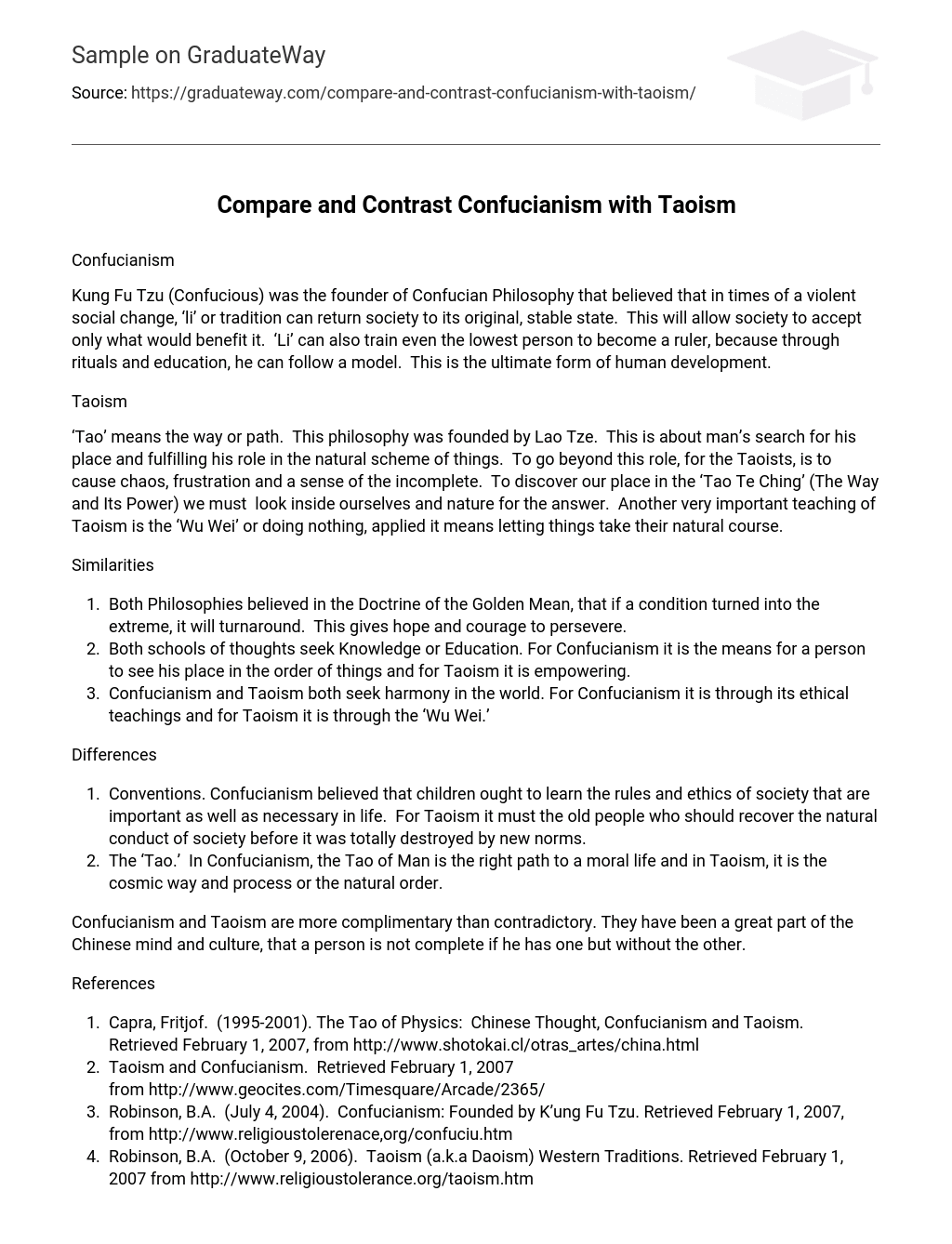Confucianism
Kung Fu Tzu, also known as Confucius, founded Confucian Philosophy. He believed that during times of violent social change, tradition or ‘li’ can restore society to its original and stable state. By doing so, society can accept only what is beneficial for it. Additionally, ‘li’ can train even the lowest person to become a ruler by following a model through rituals and education. This is considered the ultimate form of human development.
Taoism
‘Tao’ means ‘the way’ or ‘path’. This philosophy was founded by Lao Tze. It is about man’s search for his place and fulfilling his role in the natural scheme of things. To go beyond this role, for Taoists, is to cause chaos, frustration, and a sense of incompleteness. To discover our place in the ‘Tao Te Ching’ (The Way and Its Power), we must look inside ourselves and nature for the answer. Another very important teaching of Taoism is ‘Wu Wei’, or doing nothing. Applied, it means letting things take their natural course.
Similarities
- Both philosophies believe in the Doctrine of the Golden Mean, which states that if a condition becomes extreme, it will eventually turn around. This gives hope and courage to persevere.
- Both schools of thought seek knowledge or education. For Confucianism, it is a means for a person to understand their place in the order of things, while for Taoism, it is empowering.
- Confucianism and Taoism both seek harmony in the world. Confucianism achieves this through its ethical teachings, while Taoism does so through the concept of ‘Wu Wei’.
Differences
- Conventions: Confucianism believed that children should learn the important and necessary rules and ethics of society for a successful life. On the other hand, Taoism believes that it is the responsibility of older generations to restore natural conduct in society before it was destroyed by new norms.
- The ‘Tao’: In Confucianism, the Tao of Man is considered as the correct path towards leading a moral life. However, in Taoism, it refers to the cosmic way and process or natural order.
Confucianism and Taoism are more complementary than contradictory. They have been a great part of Chinese culture and the Chinese mind. A person is not complete if they only have one, but not the other.
References
- Capra, Fritjof. (1995-2001). The Tao of Physics: Chinese Thought, Confucianism, and Taoism. Retrieved February 1, 2007 from http://www.shotokai.cl/otras_artes/china.html
- Taoism and Confucianism. Retrieved February 1, 2007 from http://www.geocities.com/TimesSquare/Arcade/2365/
- Robinson, B.A. (July 4, 2004). Confucianism: Founded by K’ung Fu Tzu. Retrieved February 1, 2007 from http://www.religioustolerance.org/confucius.htm
- Robinson, B.A. (October9 ,2006). Taoism (a.k.a Daoism) Western Traditions.Retrieved February1 ,2007fromhttp://www.religioustolerance.org/taoism.htm





